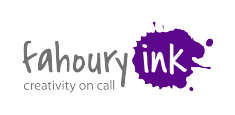Recently, a guest poster on the Ask a Manager blog (one of our long-time faves) used an interesting phrase in responding to a question: “bury the lede.”
If you’re not familiar with the term, burying the lede means not prioritizing the most important or relevant parts of a story. It’s rooted in old-school newspaper journalism, when Linotype machines used pieces of lead to separate typeset lines.
So the spelling lede (pronounced leed), was used to distinguish it from lead (pronounced led).
Confused yet? That’s the point. A reference that’s wholly familiar to someone with a typesetting or journalism background may be missed completely by a reader who’s never held a physical newspaper.
When someone’s consuming your content, it’s not wise to make them feel dumb or left out of the club.
Consider how often your content uses colloquialisms, idioms or even pop culture references that are relevant solely based on age, professional background or culture.
You could be in for a rude awakening.
But it’s a sort-of-easy fix if you’re aware of it. The next time you’re reviewing content before posting, view it through these three “frame of reference” lenses:
Contextual content references
One of our favorite clients has a military background, though he’s now working in the healthcare field. So imagine our confusion when a recent email featured the subject line “sitrep?” and nothing else.
Thank goodness for Google, which quickly informed us that sitrep (situation report) is a form of status reporting. The term (of military origin) provides a clear, concise understanding of the situation.
Plainly stated, he was asking for an update on the campaign we were creating for him.
We were (gasp!) ourselves guilty of contextual jargoning last week when a client asked about a note in a draft document we’d sent her — content TK. Clearly that means “to come”, right? Apparently not.
Similar to lede, TK is a remnant from old-school journalism, in this case proofreading. TK is more easily recognized as a placeholder than TC, hopefully preventing embarrassingly incomplete copy from going live.
Use of acronyms can also fall under contextual boo-boos. POA means very different things to attorneys vs property managers or realtors. Same with PR — just ask a payroll company vs a public relations pro. When in doubt, spell it out or leave it out.
Generational content references
Hey, we all love Seinfeld. Then again, maybe not. Keep in mind that a client or prospect on the younger side may have been a toddler when Seinfeld signed off. So you may want to swap out your low talkers and yadda yaddas for something more contemporary.
Generational disconnects most commonly happen when using pop culture references — TV, movies, books, music. When in doubt about your audience’s age range, it’s best to stick with current or evergreen material rather than go back to the good old days.
Think Schitt’s Creek (timely) or Star Trek (timeless) before Starsky & Hutch.
Cultural content references
Cultural disconnects are very similar to generational. We recently updated one of our training presentations on content creation for a new client, and realized that many of the references might fall embarrassingly flat with this primarily Japanese audience:
- An exercise designed around the Beatles’ Yesterday
- Use of the phrase “If you build it…”
- An image of Martin Luther King, Jr. illustrating a point about the power of words
Other references were more universal from both a cultural and generational standpoint (Nike, Apple, examples relating to food and family), so they remained in the presentation. But the majority required much more thought, research and creativity to make sure we were connecting with our audience.
It’s easy to fall into the familiar when writing, or assume that everyone who’ll be reading our content looks, thinks and communicates like us. Being mindful and diversifying your references, examples and language to be more universal and inclusive may take a bit more time, but the payoff is well worth it.

